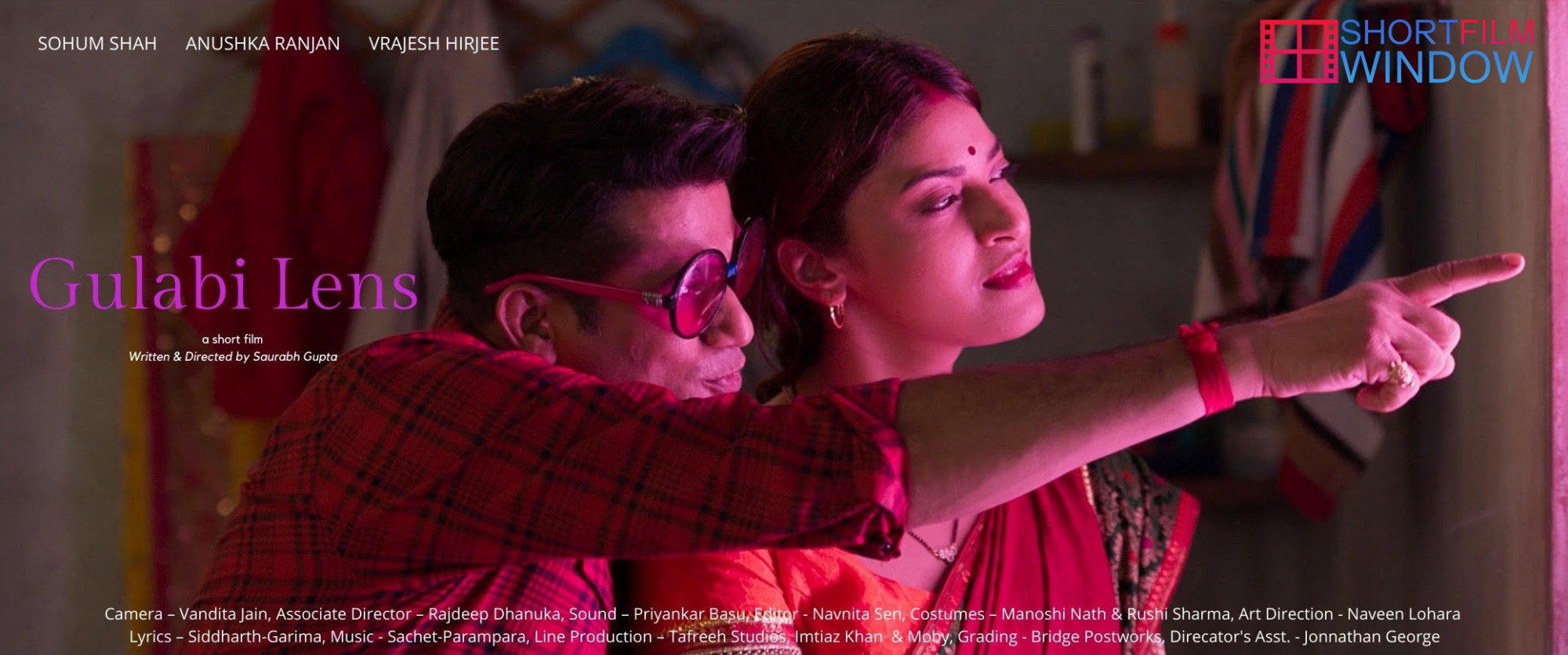
Saurabh Gupta on Making Gulabi Lens by ShortFilmWindow Team
July 28th, 2020
We spoke to Saurabh Gupta - Director of Sohum Shah Anushka Ranjan starrer Gulabi lens.
Hello Saurabh, where did you grow up?
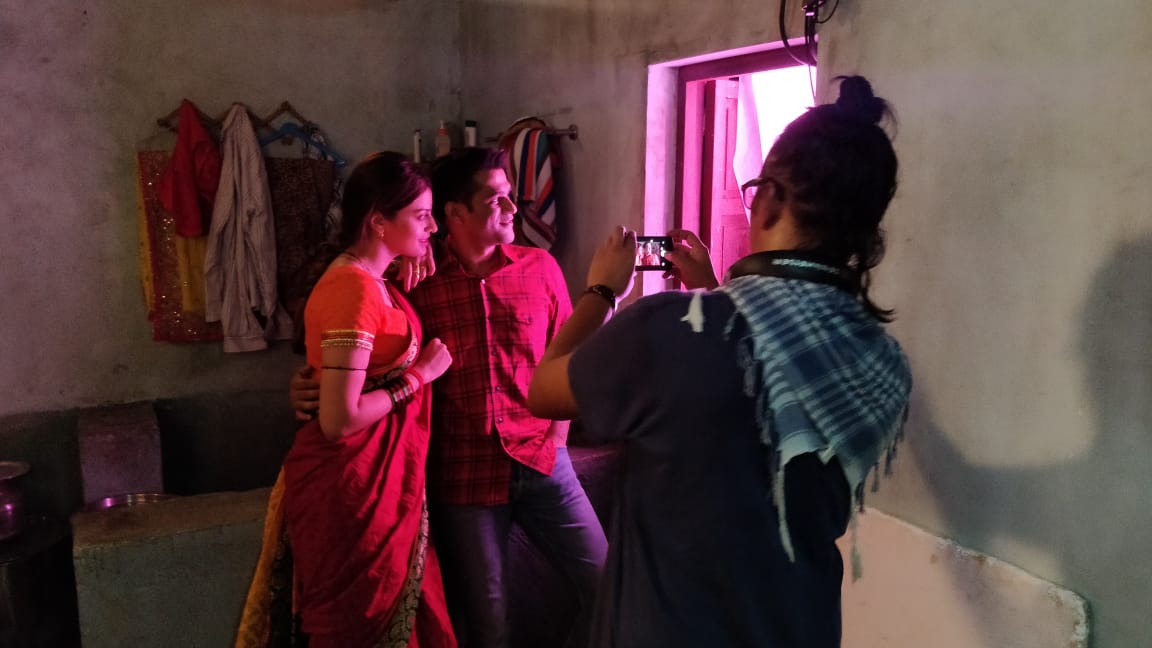 I grew up all over India. My father worked for the government so we were posted to towns across the country. I really know what Gulzar sahab means when he write ‘chhote chhote sheheron se, khaali bore dupahron se’ in Bunty aur Babli. I think it was those hot, endless afternoons spent doing nothing that shaped my over-imaginative mind.
I grew up all over India. My father worked for the government so we were posted to towns across the country. I really know what Gulzar sahab means when he write ‘chhote chhote sheheron se, khaali bore dupahron se’ in Bunty aur Babli. I think it was those hot, endless afternoons spent doing nothing that shaped my over-imaginative mind.
How did you get into filmmaking?
A lot of learning the craft happened on the job for me. I got a chance to direct an ad film in 1999 (when I was 22) because the client liked the script that I had written. I found myself on a film set without any formal training. I remember (senior cinematographer) Mahesh Aney was the DOP. I didn’t even know that I had to call for action nor did I have any of the grammar to communicate with the DOP. I requested him to direct till lunch and then took over .
In 2004 I wrote a short film called Ctrl + Alt + Del and sent the script to Rahul Bose. I wasn’t expecting to hear from him but he called me up and we met at the Bombay gymkhana club. It was a science fiction film about a man who falls in love with a voice on the phone that’s actually a marketing software selling him things.
This experience of making this first short film and seeing it through gave me the confidence that I could actually tell my stories and that there was a place for them and that is how I finally got into filmmaking.
Gulabi Lens is a finished will with a lovely song and great production values. What was your approach for making the film ?
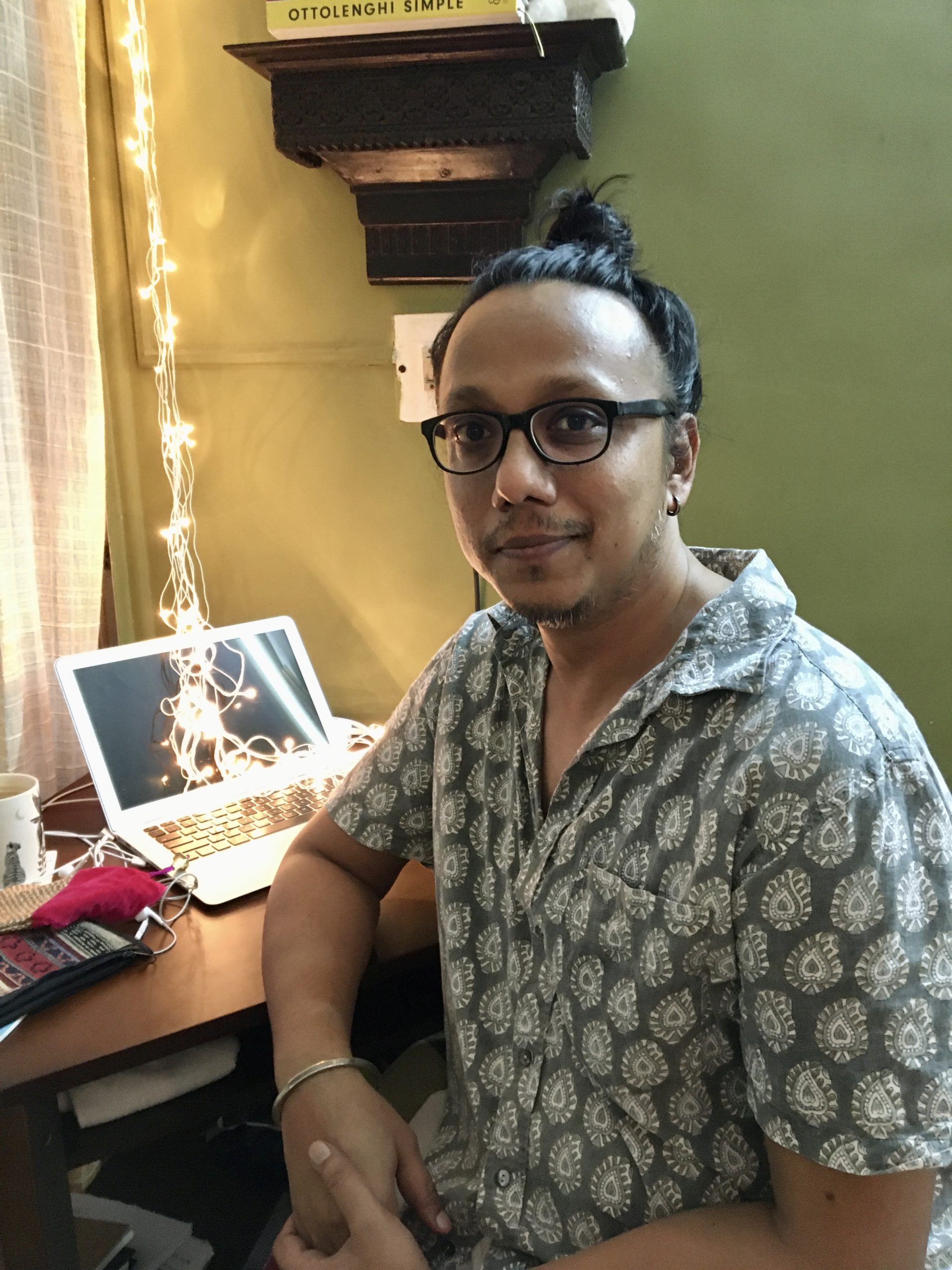
In January 2019, I had just finished working on a film with Mr Prakash Jha and I was keen to get back on the set. I wrote and pitched the story to my friend and Associate Director Rajdeep Dhanuka who I had met on the set of Mr. Jha’s film, Pareeksha. He was excited about it and the journey started.
I contacted technicians I had worked with on web ads, corporate films and other projects and pitched the film to them. I also went to several crew members who I had worked with on Pareeksha. Priyankar Basu who did the sound, Mangla di who did the make-up, Sheena, Anant a lot of the crew members were colleagues I had already worked with. Anant actually flew down from Ranchi at his own expense to work on the film. Vandita Jain, the DOP, and I had shot a web ad together a couple of years back so when I approached her she carved out time for me from her hectic schedule.
I would say overall my approach was to reach out to people I had already worked with or who knew me - and then let the script attract them to the project. I think I am likely to repeat this process again. There’s a comfort level in knowing your crew but more than that if they believe in your script then it makes for a very good working relationship.
What were the key challenges in putting this short together?
Gulabi Lens is almost entirely financed by my writing fees apart from a chunk of money invested by my wife, Dr. Manjima Bhattacharjya. I write for other filmmakers and OTT platforms - while I was doing recce and rehearsals I would also find time to send out a dialogue draft for a show I was writing on get on a call with the client.
I had to be the Producer and Director and that was another challenge. They’re both demanding jobs that require problem solving and creativity. Ideally one wants to be able to focus on one.
We had a tough time because by the time we got organised, it was the monsoon. In hindsight the rain stole several hours of shooting time but also gave me some beautiful outdoor scenes.
Inspite of knowing a few people, I’d say the biggest challenge was finding the right crew. Given the massive amount of work that was happening at that time, talent was in short supply. I am really grateful for the time that the team gave this project.
What were the key learnings?
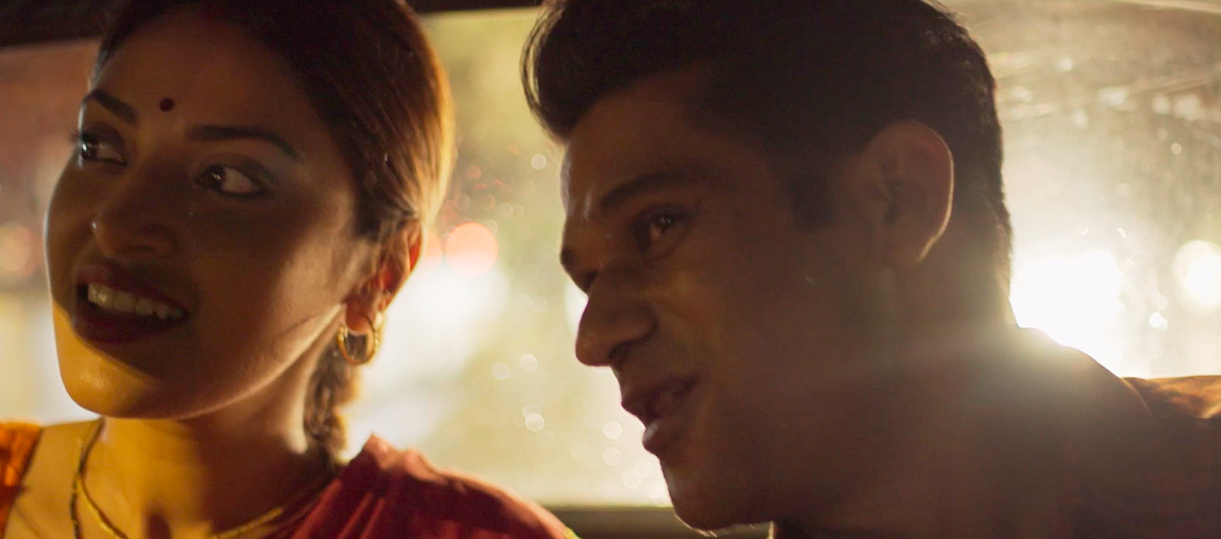 One of the most important things I learnt while making this film was that no matter what the odds but if your team believes in you and the script, you can power through any kind of adversity
One of the most important things I learnt while making this film was that no matter what the odds but if your team believes in you and the script, you can power through any kind of adversity
Manoshi and Rushi did the costumes and through their work guided the colour palette of the film. I learnt a lot watching them work. From the start they treated the project like any feature film. We worked with colours, mood board, styles and the justification for even the smallest things like a bindi or a belt. The film looks good because of all the hard work and craft that they brought to it.
Naveen Lohara who did the art has a unique approach where he does not create any references or download pictures from the net. I had to trust him and this worked wonderfully for me because realised that I like to work from a blank canvas as well. He managed to do what he did in the money that we had.
The Editor, Navnita Sen, and I differed on the final cut. She changed the structure of the narrative. It took me a few days to understand her point of view and finally we crafted an edit of the film as it is today - even though I had to give up a couple of scenes I really wanted to keep. This taught me that the film is re-written at the time of edit.
All three actors were a joy to work with and taught me a lot about the ways in which I can tell my stories.
The Song
The soul of the film is the song written by Siddhartha Garima. I was thinking of few lines that I wanted towards the end of the film. I sent Siddharth the situation and a few days later they came up with the poetry that magically captures the essence of the story. These are the writers who’ve created iconic films and their songs like Ramleela, Toilet Ek Prem Katha among others.
They collaborated with Sachet-Parampara and produced the song entirely on their own. I got it as a ready-made sliver of soul that I could embed in my film. We are now making a music video and then plan to release the song on music platforms.
How did you approach the actors for the same, were they game to be part of a short film. How was their experience?
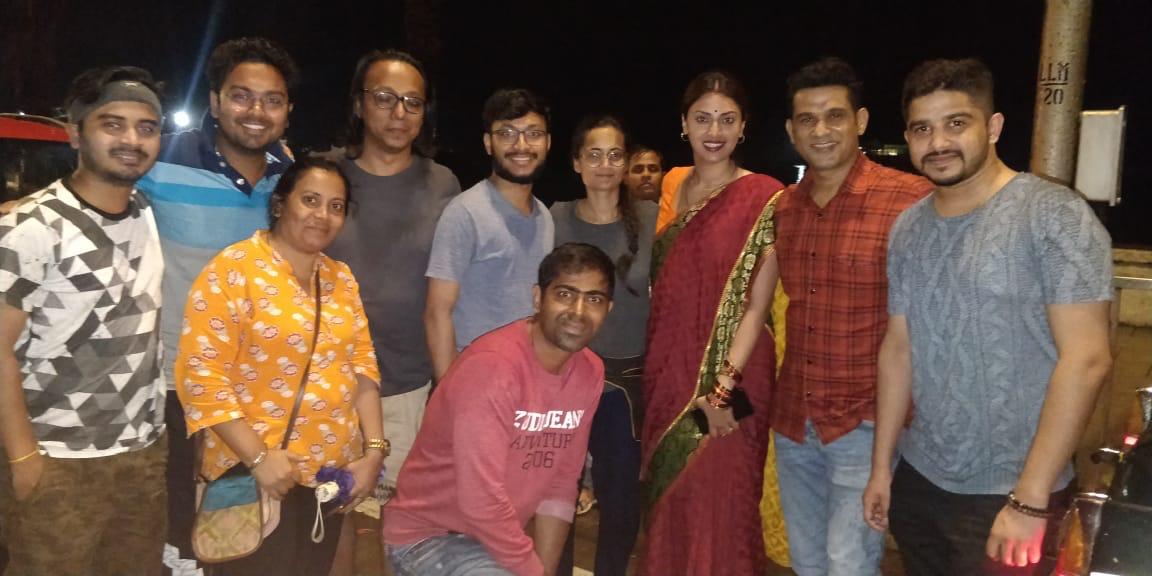
The film really started to take shape when Imtiaz Khan, my Line Producer, sourced Soham Shah’s number for me. I really wanted to work with Soham. I was sure that he was Ravi. He brings a certain vulnerability within the Indian masculine framework that I wanted. I wrote to him and he responded - it was as simple as that. I narrated the film to him in his Araam Nagar office and he said yes at the end of the narration. Through rehearsals, costume trials and later dubbing - Sohum always brought total commitment and energy.
I had known Anushka for some time. I am writing a film for her that she is producing. The day I finished writing the script I knew I wanted her to play Suman. During the costume trials when I saw her holding the large purse and move - I could see her transforming into a girl from a small town. She brought a playfulness to the role that tells you what a seasoned actor she is.
Vrajesh Hirjee was referred to me by a friend on Twitter. I pitched him on Twitter and he wrote back asking for the script. Amazingly enough he called me the next day and said that he would do the film. I can’t wait to work with him again. He is an absolute encyclopaedia of stories about the film industry.
When we finished in South Mumbai, it had been pouring the entire day. But Soham asked me if I wanted to shoot more. I wanted to do a shot at Haji Ali and he was game. We shot in moving cars guerrilla style for another one and a half hours.
This film would not have been possible without the love and commitment of Soham and Anushka.
What 3 advice will you give to aspiring filmmakers in this industry?
- Your main income should come from an ancillary job in the industry. When you’re starting out it’s unlikely that you’ll get a shot at the projects you want. Work in casting, assisting or if you can write. It pays the bills and can even pay fo
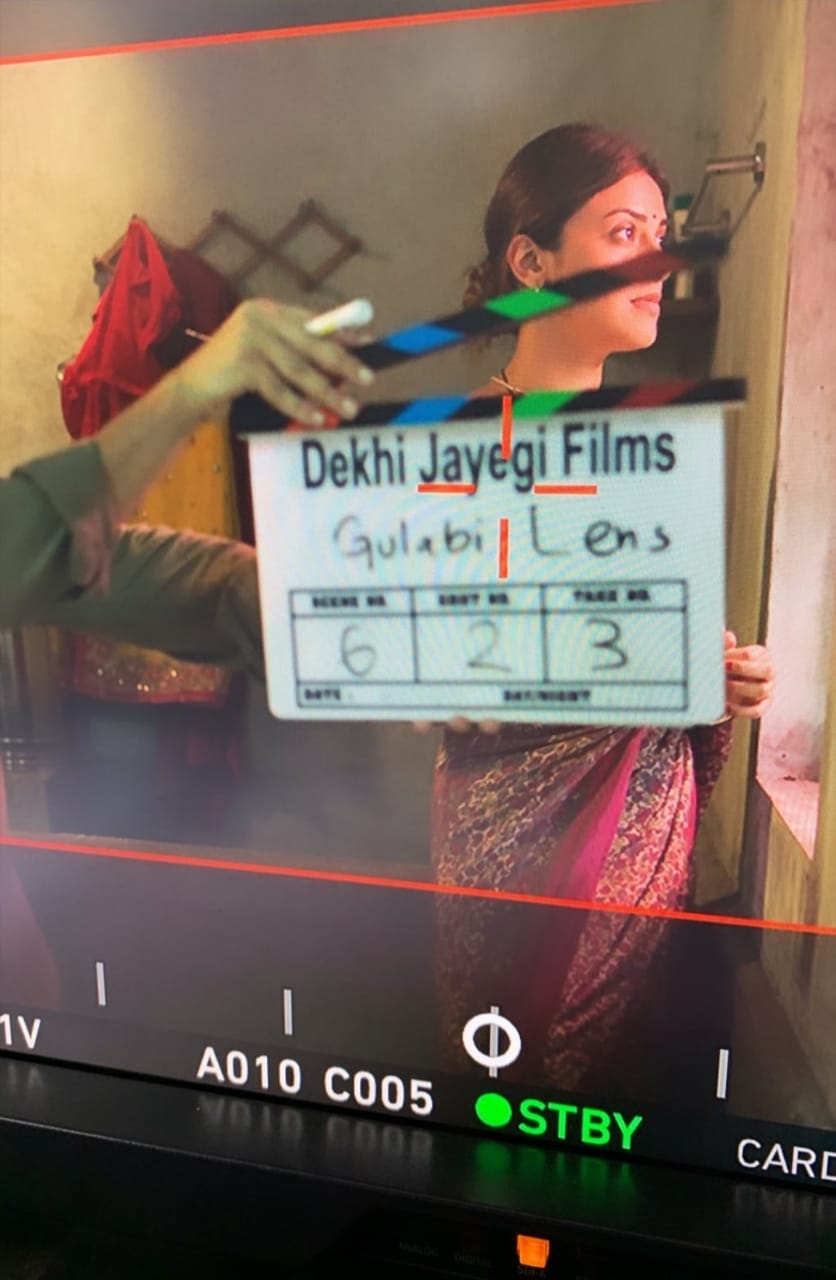 r a short film!
r a short film! - Relationships - actually working with people on set is the best way to know them and for them to know you. Most of my crew had seen me work and worked directly with me on the sets of Pareeksha. These relationships are GOLD. Work on TV, OTT, Film anything that you can and build friendships. One of my clients, Vaibhav Modi - Victor Tango Productions, opened up his office for me to setup the production office for a few days. The knowledge that you can lean on experienced, senior folks if yo
u run into a problem, really helps. Relationships are the rocket fuel of cinema. - Your script is the light house that will guide your ship home. I would like to believe that my crew, the actors all worked for me because of my charm and intelligence but actually it was the script. The scenes, the story and sometimes the dialogue meant something to the people working on Gulabi Lens. And that is a good place to be. Work on multiple drafts - till you are satisfied.
What were the challenges of doing a festival journey. What do you expect from the ecosystem.
Gulabi Lens has played at the Seiger International Film festival, the UP film Festival and got an honourable Jury mention at the 10th Dada Sahab Phalke film festival. Recently it played at the Indian film festival in Stuttgart that was held online. We only started the festival journey in January 2020 so the cancellation of several festivals is disappointing.
Final post of the film was done at The Bridge and Sid has had tens of films in prestigious festivals like MAMI. His support of Gulabi Lens is evidence that film festivals have been successful in creating an eco-system for cinephiles. Makers like Sid who will support indie cinema for the love of it.





